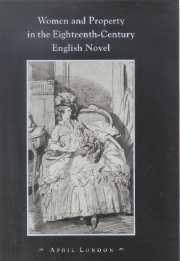Book contents
- Frontmatter
- Contents
- Acknowledgements
- Introduction
- PART I SAMUEL RICHARDSON AND GEORGIC
- PART II PASTORAL
- PART III COMMUNITY AND CONFEDERACY
- PART IV THE POLITICS OF READING
- Introduction
- 9 The discourse of manliness: Samuel Jackson Pratt and Robert Bage
- 10 The gendering of radical representation
- 11 History, romance, and the anti-Jacobins' “common sense”
- 12 Jane West and the politics of reading
- Epilogue
- Notes
- Bibliography
- Index
9 - The discourse of manliness: Samuel Jackson Pratt and Robert Bage
Published online by Cambridge University Press: 14 October 2009
- Frontmatter
- Contents
- Acknowledgements
- Introduction
- PART I SAMUEL RICHARDSON AND GEORGIC
- PART II PASTORAL
- PART III COMMUNITY AND CONFEDERACY
- PART IV THE POLITICS OF READING
- Introduction
- 9 The discourse of manliness: Samuel Jackson Pratt and Robert Bage
- 10 The gendering of radical representation
- 11 History, romance, and the anti-Jacobins' “common sense”
- 12 Jane West and the politics of reading
- Epilogue
- Notes
- Bibliography
- Index
Summary
In Samuel Jackson Pratt's Shenstone-Green; Or, The New Paradise Lost (1779), the antidote to female reading and its political correlative, naive idealism, is masculine “Common-sense.” The sympathetic identification encouraged by sentimental fictions with their “fancy, and folly, and fine sense, which … is no sense at all” is measured by Pratt against the standard of the evaluative detachment exercised by men skeptical of a universal capacity for benevolence. Few, he contends, are now willing to acknowledge the hierarchical values that such a standard ratifies. The ubiquitous non-sense that keeps “the presses in employment” instead exploits the authority of print to nourish the effeminacy on which sentimental reading depends. The habits of private reading in turn infiltrate the political realm by encouraging a belief in social progress and in the efficacy of universal benevolence. In resisting these, Shenstone-Green consequently rejects the notion of sensibility, which it construes as a pernicious idealization of human nature. At the same time, the novel condemns the conservative politics of nostalgia, with its tacit assumption that there exists a group of men (Man of Feeling) or women (Millenium Hall) whose natural disinterestedness would secure social order. But Pratt's intentions are not simply confrontational. While Ruth Perry has suggested that the novel lacks “a serious vision of an alternative way of life,” it does in fact advocate a pragmatic accommodation of “benevolence and business”. This middle-class ethos is succinctly expressed in the “Golden Rules of Œconomy” that concluded his earlier work, Liberal Opinions (1775–6): “Get honestly, and give cautiously” (VI.221).
- Type
- Chapter
- Information
- Women and Property in the Eighteenth-Century English Novel , pp. 141 - 153Publisher: Cambridge University PressPrint publication year: 1999



